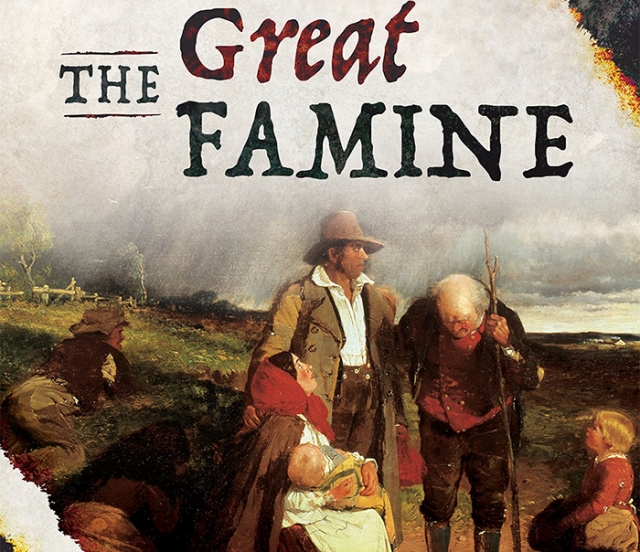The Great Famine
Book review

The Great Famine, (ed) John Gibney, Pen and Sword History, 2018, 136p, £12-99. ISBN 9781526736635.
This selection of essays, edited by John Gibney, is the first instalment of a collaboration between Pen and Sword History and the History Ireland magazine. Its focus is the Irish Potato Famine of the 1840s but it very successfully provides a much wider perspective.
There is a tendency in Britain to see the crisis in Ireland as being a result of an underclass having been compelled to consume a less than satisfactory food source which, by the natural intervention of potato blight, suddenly became unavailable. However, it becomes clear that, since the introduction of the potato to Europe over two centuries earlier, the potato had been widely regarded as a very nutritious, flexible and acceptable food source. Indeed it is argued that the potato was such a valuable source of nutrition that babies were weaned on it at a very early age and the early cessation of extended lactation amongst women removed the inherent benefits of associated contraception, thereby being a factor in the rapid population growth in 18th-century Ireland.
Another valuable insight is that, whilst the deaths and emigration of the 1840s were horrendous, Ireland had experienced a previous and proportionally more devastating population crisis in 1740-41 which, due to the effects of severe winter weather and ensuing dramatically reduced crop yields, led to almost half a million deaths.
Without attempting to excuse what happened, the parallel agricultural outputs of Ireland are also explained. Alongside the massive potato crop, Ireland’s very rich farmland produced very substantial grain crops which were shipped out of Ireland to Britain and further afield. This was a hugely financially successful business. Whilst the potato crop remained secure, the paradox of potato crops feeding the working class and the grain crop being an activity associated with the business interests of the ruling class did not especially create discord. It was the inability to react appropriately to a humanitarian crisis in the mid-1840s which brought this agricultural paradox into public awareness.
This book represents a very significant reflection on what happened in Ireland in the 1840s and on the various reactions to the crisis, including the coverage in Punch magazine.

